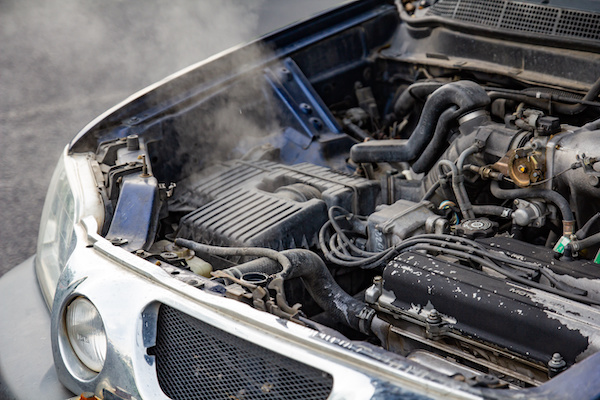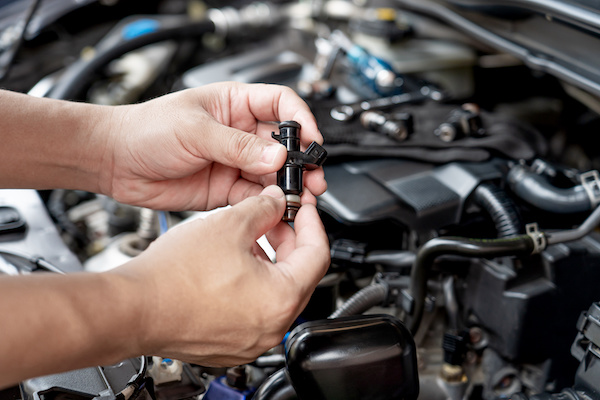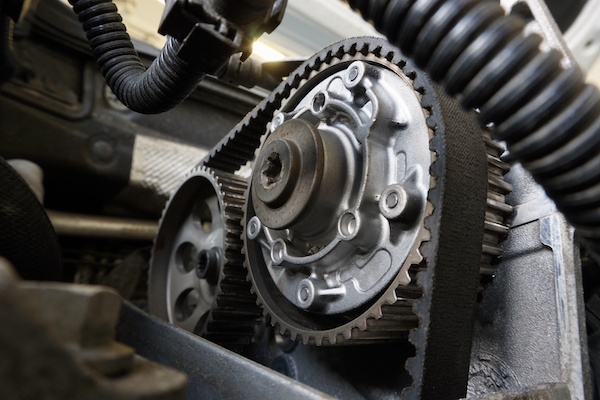Posted on 12/23/2022

Most of your car's external components may add to the aesthetic appeal but still play a critical role in your vehicle's operation, like the windshield wipers. They help sustain visibility, a vital requirement in driving. Wiper Blades Rain, snow, and dust usually decrease your windshield's clarity on the road. But your wiper blades help keep your windshield clear for safe driving. However, with time and use, the blades wear out and require replacement. When Should Wiper Blades be Replaced? A general rule is to replace your wiper blades every six to 12 months, depending on how often you drive and where you live. The replacement frequency also depends on the type of blades. Also, most car experts may recommend changing your wipers on a schedule. But like every other vehicle component, regular maintenance is an excellent way to keep track of your wiper blade condition. Signs that your Wiper Blades Need Replacement While you should change wiper blades every six to 12 mon ... read more
Posted on 11/29/2022

Engine overheating is a common problem for people who use gas cars. Apart from the obvious discomfort, overheating can cause damage to the engine and other critical components. Overheating occurs when the heat generated by the motor exceeds the normal operating temperature, or the cooling system fails. How to Detect Overheating If your car overheats while you are driving, you will: • see an ‘H' warning on the temperature gauge • feel a strange smell coming from the engine • or see steam or smoke coming from under the hood A Problem in The Cooling System Engine overheating is caused by a malfunctioning cooling system. The cooling system regulates engine temperature by circulating a coolant through the engine and releases excess heat through the radiator. The most common causes of overheating include: Insufficient Coolant Your engine should have a 50/50 mix of coolant and water. The engine can overheat if there is too litt ... read more
Posted on 10/31/2022

Fuel injectors are your car's small but significant engines. The fuel injectors are responsible for delivering the right amount of fuel to the engine. A fuel injector typically delivers liquid fuel under pressure into the combustion chamber of an internal combustion engine. Fuel injectors are often used in conjunction with a fuel pump to provide fuel to the engine. Fuel injectors are usually electrically operated valves. They are typically opened by an electric solenoid or by a vacuum produced by the engine's intake manifold, and they may be closed either mechanically or electronically. Importance of Fuel Injector Fuel injectors are very important as they will save you a lot of money and ensure the smooth operation of your vehicle at all times. If they are not functioning correctly and are clogged, the machine will not be able to produce enough power, which will lead to a number of problems. That's why it is necessary to find out if there is a problem with the fuel injec ... read more
Posted on 9/29/2022

It might not be something that you check every time you get ready to drive your car, but the timing belt is critically important. This is why you will want to know when it is time to replace the one in your vehicle. That being said, it is not always easy to know when the time comes to do that. Thankfully, there are some indications that your timing belt is beginning to pass its life expectancy. Continue reading to learn about some of these signs and how you know it is time to visit your local mechanic to get it taken care of. Warning Signs While most vehicles on the road today can now go more than 100,000 miles before the timing belt needs to be replaced, there are always exceptions to the rule. Here are some indications that your timing belt may be about to break. The engine fails to start - If your timing belt has snapped, your engine will not start. It is as simple as that. A strange noise is coming from under the hood - The timing belt is meant to help the valves and pistons su ... read more
Posted on 8/30/2022

You need to service your car regularly to maintain its optimal functioning capacity. Vehicle manufacturers and mechanics recommend you service your car every 12,000 miles or at least once a year, whichever comes first. However, many people miss their vehicle service and may start experiencing some problems. What Happens If You Miss a Vehicle Service You may be worried about what a delay in vehicle service will do to your vehicle. If you delay about 1000 miles on a 12,000-mile recommendation, you don't have much to worry about as it will not damage your engine. Many problems will arise if you miss your vehicle service. Some of the complications may be quite costly. Here are some of the issues you can expect when you miss your vehicle service. Expensive replacements - if you do not service your vehicle, it will lead to extreme wear and tear to the parts. Vehicle spare parts are expensive, and you may have to dig deep into your pocket to get replacements. At some point, you may al ... read more